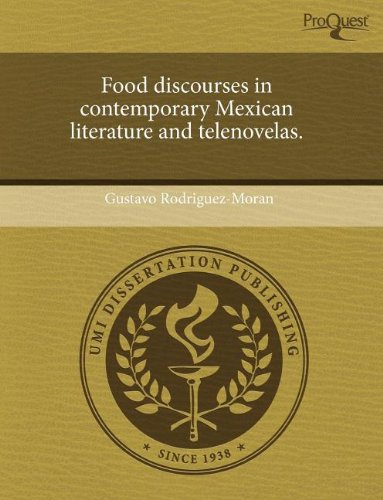Food discourses in contemporary Mexican literature and telenovelas. Review
This dissertation explores the discursive connections between food, gender, genre, class, and national identities in contemporary Mexican narratives and telenovelas or soap-operas. It examines the collectively constructed symbolic meanings of food. In some instances, I argue, food offers strategic resistance to patriarchal authority. In other instances, food tropes subvert hegemonic social constructs and collective "imagined identities," to support the articulation of what I will call "the new hygienic Mexican identity" for the global imaginaries of the late 20th and early 21st centuries. My analysis includes the following novels: El hombre de los hongos (1975) by Sergio Galindo, El vampiro de la colonia Roma (1979) by Luis Zapata, Arrancame la vida (1985) by Angeles Mastretta, and Del tianguis al supermercado (1995) by Agustin Lopez Munguia. In addition, this dissertation includes the telenovelas Heridas de amor (2006), La fea mas bella (2006), and Destilando amor (2007). In order to examine the symbolic representations of food in Mexican narratives and telenovelas, this dissertation is organized in four chapters: The first chapter explores reformulations of the kitchen as a space of agency for women and or culturally "feminized" others (such as servants). Chapter Two revisits food as a connotative site for class identification or habitus and the way in which food selection functions as metaphor of social power. Chapter Three examines food as a trope of narration and consumption in literature and telenovelas. In this chapter, I argue, the consumption of food represents ideological reproduction, while its refusal signifies counter-hegemonic positions. Finally, the fourth chapter explores the hybridity of genres in literature and telenovelas such as literary works that appropriate scientific discourse, and telenovelas that interconnect with other mass media genres such as the cooking shows or the food documentary. These cultural artifacts ambiguously preserve imagined identities, while at the same time they promote the consumption of "exotic Mexicanness" in the global market. Read more...
Free Shipping Food discourses in contemporary Mexican literature and telenovelas. @ Amazon.com

0 comments:
Post a Comment